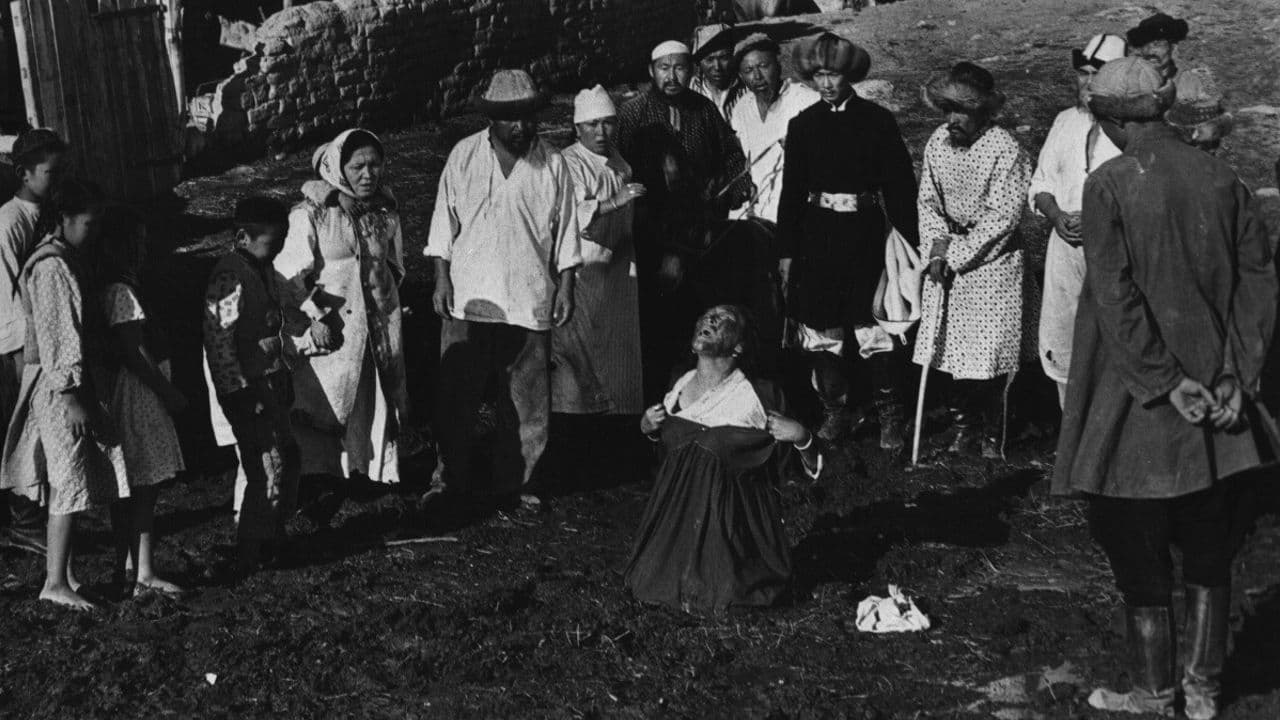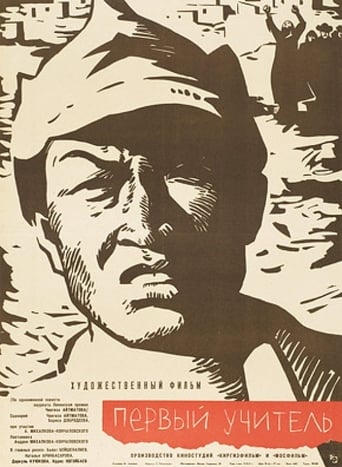Kirpianuscus
sure, it is not the right word about this film. but it could be a reasonable one. because the film must be discovered in the political context of its birth. as a form of fight against political command. as a touching story about a teacher, a community and a mission. a simple story about evolution of a man looking for the right manner to change the others. and to define himself. short, one of the films about small realities. about fears and errors and need to build the sense of the presence in middle of people. story of the first teacher in a Kirghiz village. nothing more.
sstocker1
This early work by Adrei Konchalovsky, best known for the Hollywood movie Runaway Train, surpasses the typical Soviet propaganda film by daring to protray its protagonist as being so ideological he's goofy. The protagonist is a Red Army veteran named Diuishen who has been sent to a godforsaken section of Kirghizia to start the first school in the region. On the first day of school, the students ask him about death, and as their teacher, Diuishen is happy to answer their questions, until a little boy innocently asks him if Lenin is going to die someday. Diuishen becomes enraged at the suggestion that his god Lenin is actually mortal and, practically yanking the little boy's arm off, accuses him of being a counter-revolutionary. The boy, of course, has absolutely no idea what Diuishen is talking about.This incident almost derails Diuishen's plans to start a school by scaring away his students, but Diuishen calms down and the children are wise enough to see that he is offering them a new and perhaps better way of life. Although the children accept him, the adults barely tolerate his presence since they see him as a threat to their way of doing things.The movie shows Diuishen, propelled by his ideological fanaticism, learning to be human and the townsfolk, equally fanatic in their desire to keep the outside world at bay, gradually coming to terms with inevitable change. The ending, had the movie been made in Hollywood, might have been called Capraesque, but I think it is more touching than anything Capra would have done because it doesn't hit you over the head with its emotions. Instead, they sneak up on you. The lack of music at the end is particularly fitting. Instead of a booming orchestra, there's just the sound of axes.

